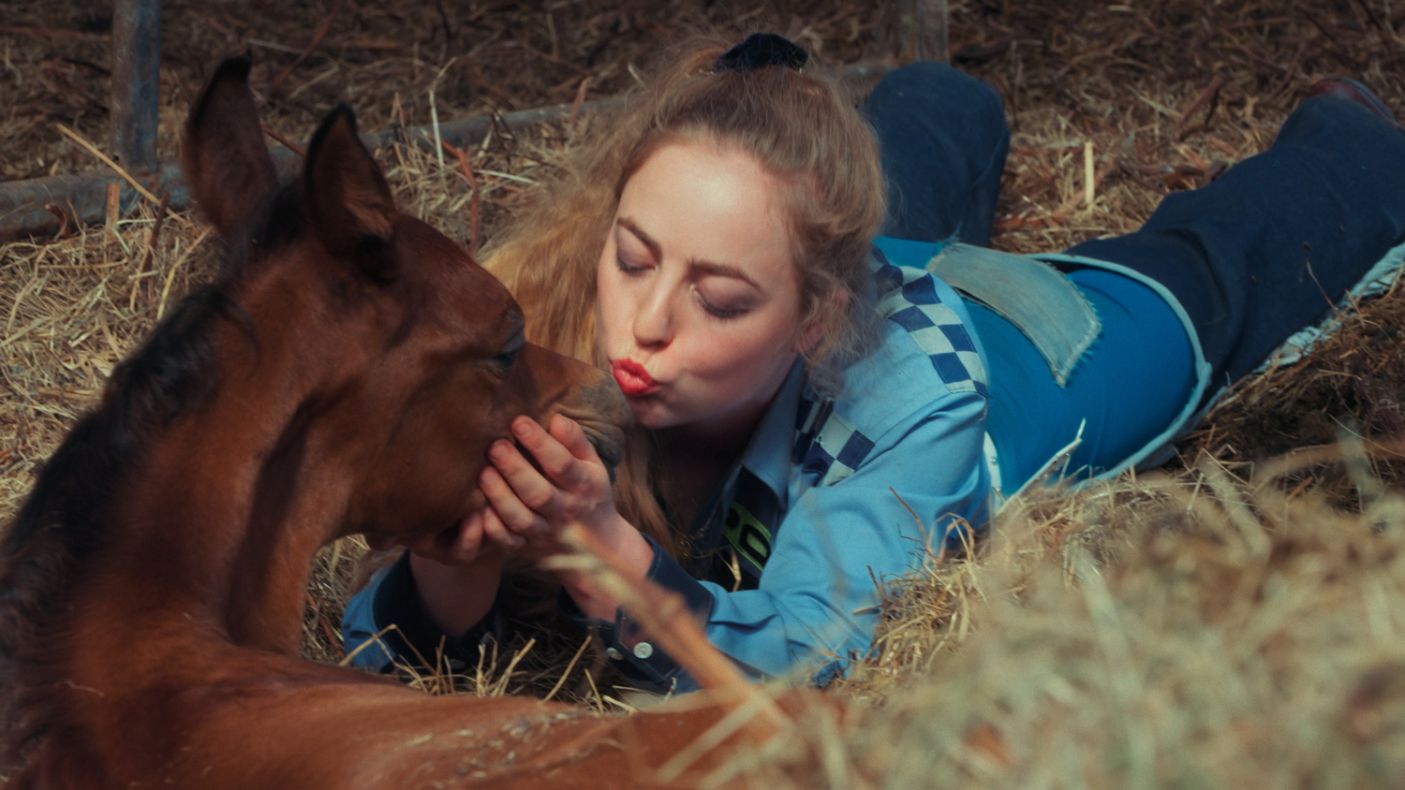Josefin Arnell: CRYBABY
9 February–28 April 2024

The work of Josefin Arnell (b. 1984, Sweden) defines a loaded visual language combining anger, desire, disgust and pleasure. Her films and works create space for complex realities, socially marginalized characters and absurd fictionalization. In her working methods, Arnell commits to collaborating with real life and the slackening of control that it can entail. Using call and response methods, and sometimes working with people without acting experience – who might not always follow scripts, or rehearse – reality seeps through in Arnell films, contributing to a darkly humorous sense of the uncanny that speaks of the existing interplay between individuals.
Josefin Arnell’s work has largely not been shown in Sweden. With the exhibition CRYBABY, Index presents a body of work that has been growing over a number of years, developing through the assumption of real life as a stage and the possibility for cinematic experimentation. The exhibition offers a selection of films – new and existing works – that visitors encounter within a close proximity and time span. Jumping between genres, Josefin Arnell finds ways to question the relationship with the viewer, while embracing provocation, moral questions, and through filmic characters whose backgrounds transgress the norm. In her films, Josefin Arnell depicts relations of power and control, vividly interweaving the real with the unreal and sharpening the edges of both.
The horse and the stable are recurring motifs in Arnell’s practice. In Wild Filly Story (2020), the setting of the stable, and the sensory associations of that place, have an autobiographical resonance for Arnell. As a teenager she would frequent a local stable as a place of escape, an alternate reality. Mucking out the horses, clearing up their shit, was Arnell’s voluntary task in exchange for riding the horses. The community she found there included female figures learning to care for and control these large and powerful creatures. The stable is presented as an arena for power games, exploring the tensions within a micro-community, also symbolizing those that exist on a broader societal and cultural scale, and the power asymmetries which create them.
Watching Arnell’s filmworks can give the sense that the making of them is transformative for all involved. The relationships that develop in front of and behind the camera also make the work; based on the juxtaposition of intentions and desires, on letting things unfold with the people invited in, and for whom Arnell, as director, provides boundaries that can be molded collectively. The effects of this have a bearing not only on the viewers, but with all those who have collaborated on and implicated in the work. In this way, Arnell’s works function not only as a window into a shared fiction and collaborative experiment, but also indirectly as an narrative device for sucking the poison from a societal wound.
Mixing reality – sometimes casting people without acting experience, shooting without rehearsing or closely following the scripts – with a visceral and obviously fake gore that is somehow bloodier than the hyperslick special effects of contemporary blockbusters, Josefin Arnell creates a camp comic horror, where laughter rings with an uneasy echo, and leaves behind a lingering introspection and curiosity about what is collectively witnessed and created, on both sides of Arnell’s camera.
The installation of the exhibition CRYBABY at Index physically manifests multiple viewing positions: the spectator, subject, co-witness. Playing with a bodily presence, a spatial realization of the leitmotif of the stable, which becomes both a scenography and a locus for narratives that mesh fiction and memory. Entering into the horse pens at a scale of 1:1 invites the viewer to situate themselves in the “wrong” place.
Based in Amsterdam, Josefin Arnell participated in the residency program at the Rijksakademie van Beeldende Kunsten. In 2018 she won the Theodora Niemeijer Prijs for emerging female artists in the Netherlands. In 2023 she was nominated for the Prix de Rome, one of the oldest and most prestigious art awards in the Netherlands, and exhibited at Stedelijk Museum in connection with the award. Her work has been presented at the International Documentary Film Festival Amsterdam (IDFA), and at institutions including Wiels (Brussels), UKS (Oslo), Van Abbe Museum (Eindhoven), Kunsthalle Münster (Münster), Palais de Tokyo (Paris), and at Athens Biennial, Moscow Biennial and festivals in Buenos Aires, Berlin, Amsterdam among other locations. She holds an MA in Dirty Art from Sandberg Instituut (Amsterdam).
Read the handout of the exhibition here